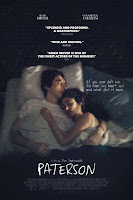 More than 1 million people attended IABC-New Jersey’s recent panel discussion at Fairleigh Dickinson University’s Madison, NJ, campus.
More than 1 million people attended IABC-New Jersey’s recent panel discussion at Fairleigh Dickinson University’s Madison, NJ, campus.OK, that’s really an alternative fact.
Still, it was challenging to try to steer clear of politics and focus on communications lessons. Luckily for the energized and engaged audience of more than two dozen, moderator and former IABC-NJ board member Rich Ecke of Berry Ecke Associates handled things like… a consummate politician.
He, along with panelists Dan Cassino, Ben Dworkin and Pat Politano resisted any urge to “re-litigate” the election results, and in the context of the “takeaways for communicators,” several themes emerged.
Authenticity.
“Who wants to be inauthentic?” Dworkin, who teaches political science at Rowan University, asked rhetorically. The new reality, he explained, is that the way to create authenticity has changed. The old rule of authenticity, Dworkin said, was that you apologize for a mistake and move on; the new rule is to not apologize and stick to your guns.
The old rule: media endorses your authenticity. The new rule: the media is a foil.
Cassino, who teaches political science at FDU, added that “authenticity is now in the eye of the beholder” and is “something we build for ourselves.” What does inauthenticity sound like? That’s easy: when one political candidate sounds just like all other political candidates. Just like when one company uses the same PR approach as every other competitor in its industry.
Dworkin also cited an unchanged rule when it comes to authenticity in business communications: “In business, if you have a lousy product, it doesn’t matter if you’re authentic.”
Simple Messages.
Politano, a political media consultant and strategist, said that the effectiveness of a simple message is still the greatest takeaway from the past election season. And while a political campaign has an end date, and an election is a fixed moment in time, business communicators need to have a sustainable message. “Big messages still matter,” Politano said. “Only the method of delivery has changed.”
Social Media.
“Reporters live on Twitter,” Cassino observed. Candidate Trump’s tweets drove and dominated coverage, which in turn drove public opinion. Dworkin called it “The Twitter Election,” and Politano said that the increasingly fewer number of journalists, “chained to desks in newsrooms,” were increasingly relying on Twitter as a news source.
Cassino noted that the Associated Press, for example, now has only one part-time reporter covering New Jersey, and that the “hollowing out” of the media ranks has put reporters “in a bubble.”
Still, Politano noted, Twitter is simply a tool to the message, and clarity, simplicity and directness are hallmarks of effective messaging that cut through clutter, especially in a business environment. And especially, if messages can be stated in less than 140 characters.
New Rules.
 |
| Dworkin, Cassino, Politano and Ecke (not a rock band) |
One audience member commented that a lack of message discipline seemed counter-intuitive in business communications. Dworkin responded that Trump kept his competition off-balance and unable to counterpunch effectively. Also, the timeliness of the attacks fueled the news value of the attacks.
Politano said, “Trump’s uniqueness enabled him to use this tactic. He’s been doing this for years. It’s his brand.” Cassino added that a changing message can be effective in business if it’s used to acknowledge problems, for example, because it demonstrates listening. ”The mere act of telling customers or employees that ‘I understand this is a problem’” can be a highly effective communications strategy for business leaders, he said.
Attracting Attention.
“You can’t replicate or copy Donald Trump,” Politano reiterated, “but you can take away lessons from his campaign… about how the media works now… about the effectiveness of acknowledging problems.” And about how to attract attention.
Business communicators, Cassino said, should know that “if you want to hide something, put it in a rote press release or standard memo. When you put out a ‘press release’ that doesn’t look like a press release, it will attract scrutiny. When people see something novel, they pay more attention.” Attention is neutral, and can turn positive or negative, but attention itself is hard to come by in today’s society.
Dworkin said, “When we talk to each other, we talk the same. Politicians all sound the same. Trump didn’t, at a point in time when people were looking for something different.”
The Politics of Change.
“Change” can be a compelling theme – for both politicians and professional communicators.
Politano offered a valuable insight about the inevitability of constant change. If there’s one thing a career in politics has taught him, he said, it’s that “everyone will say they want change, when the one thing that scares them the most is change.”
Politics aside, for IABC members who help business leaders communicate to employees, that too is an important lesson to keep top of mind.
This post first appeared on the website for the New Jersey chapter of the IABC.














